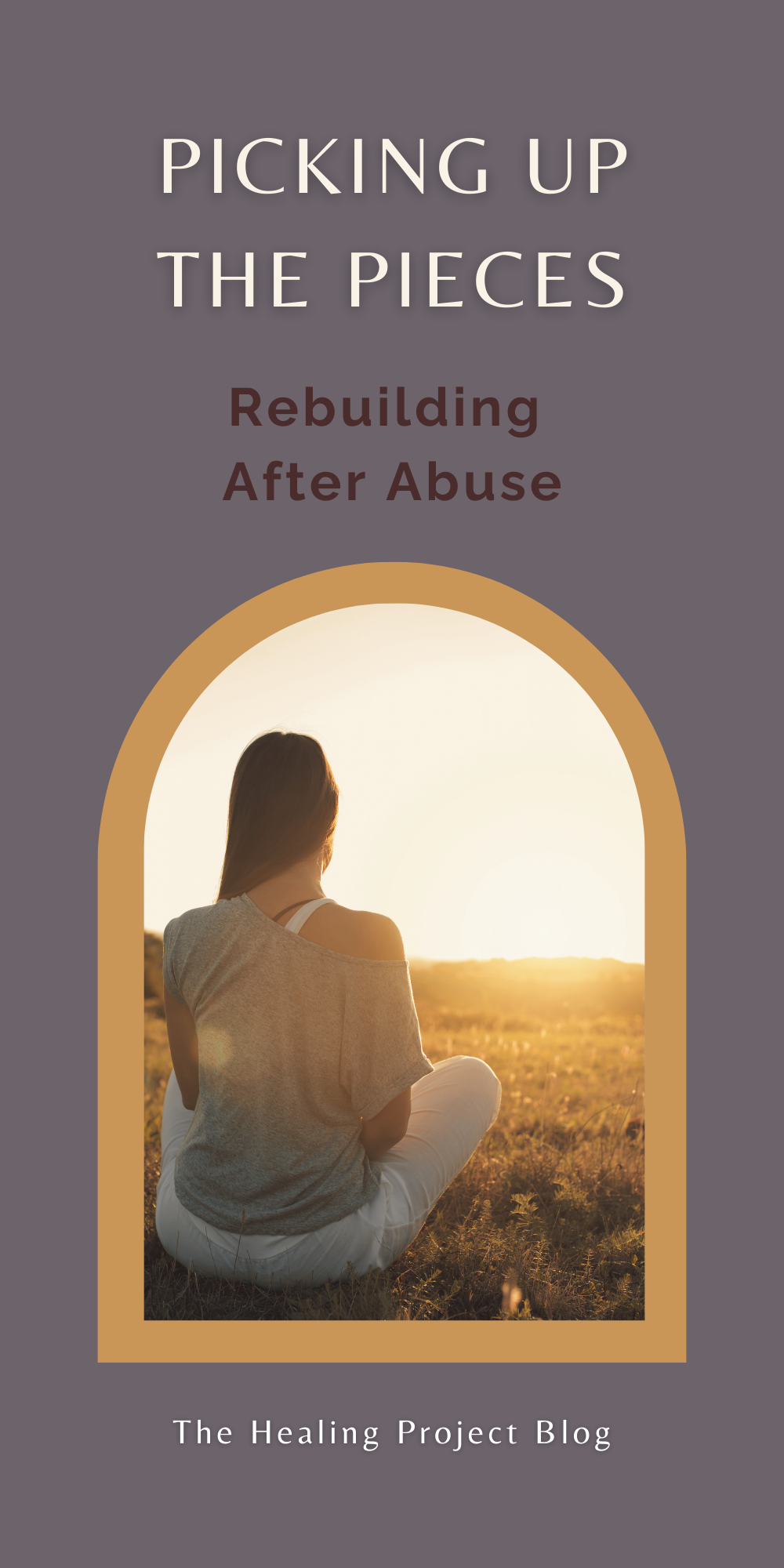Picking Up the Pieces: Rebuilding After Abuse
One thing I know on a very deep and personal level, is that when you’re living in the aftermath of leaving an abusive relationship, it can feel like your world has crumbled. You might be starting over from scratch and facing challenges that seem insurmountable, all while feeling the echoes of your trauma stirring up from the abuse.
But another thing that I intimately know, is how to rebuild your life and come back stronger, gentler, and more resilient than you ever were. I often wish that I had received more sensible guidance during my own life experiences. It's why I offer insights and information here on The Healing Project Blog, to help you make better choices than I did and understand what is really happening as you go through this messy and confusing process.
Choices, Opportunities, and Independence
It can be helpful to consider that there are choices and opportunities available around you. Even if you can't see what's around you in all the chaos and upheaval, please know that hope is still available. Stepping outside of your comfort zone can be scary, but it can also open doors to new pathways and possibilities.
Sometimes, it might mean asking for help when you're used to doing things alone, or trying something new that you’ve never considered before. You can gently step into the independence that you’ve fought so hard to gain. It's okay to take small, manageable steps towards owning it.

RELATED POST: The Fallout of Leaving an Abusive Relationship
Release Fears and Overwhelm
The process of rebuilding your life can be overwhelming, especially when your nervous system is still recovering from the trauma. It’s easy to feel paralyzed by fear and the uncomfortable task of reconciling the fallout of your choices. It may help to recognize that many of the feelings of helplessness and hopelessness that you'll likely experience are often illusions based on your fears. With time, patience, and support, you can move through this phase and rise up.
Start by focusing on what you can control, even if it’s just one small thing. Break down overwhelming tasks into smaller, actionable steps, and don’t be afraid to reach out for help. Your life may feel like it’s in pieces right now, but piece by piece, you can rebuild it into something stronger, more resilient, and filled with the light that comes from choosing yourself.

Leaving an abusive relationship is one of the bravest steps you can take, but it's also one of the hardest. The aftermath can leave you feeling drained, lost, and hopeless. It's okay to feel like your cup is empty, but also consider that you can find hope, even in the darkest moments. Follow things that help you find that light and start refilling your cup, one drop at a time.
Acknowledge the Depth of Your Pain
When you've been through the trauma of abuse, it's normal to feel like you're at rock bottom. The emotional and physical toll can be overwhelming, making it hard to see a way out. But recognizing this pain is the first step towards healing. You’ve already done something incredible by getting out, and now it’s about giving yourself the grace to heal.

Small Steps to Reclaim Your Power
Healing doesn’t happen overnight, and that’s okay. Start with small steps to regain your strength and sense of self. This might be as simple as taking a walk outside, journaling your feelings, or reaching out to a friend who understands. Celebrate these small victories—they’re proof that you’re moving forward, even if it feels slow.
Reconnect with What Brings You Joy
When you’re feeling low, joy can seem out of reach. But reconnecting with activities, memories, or even dreams that once brought you happiness can be incredibly healing. Whether it’s a hobby you used to love, a favorite book, or simply spending time in nature, these moments of joy can slowly help to refill your cup.

Find Support in the Right Places
You don’t have to go through this alone. Reach out to support groups, therapists, or friends who can offer the love and understanding you need. Sometimes, just knowing someone else is there can make all the difference.
RELATED VIDEO: You're Not Alone: A Message of Support to Survivors of Abuse
Affirmations and Self-Compassion
Affirmations can remind you of your strength and resilience. It’s important to be kind to yourself during this time. Self-compassion is not just about being gentle with yourself, but also about acknowledging your worth and the incredible courage it takes to heal.
Even when your cup feels empty, hope is never truly gone. It’s in the small steps you take every day, in the support you seek, and in the joy you allow yourself to rediscover. Your path to healing is unique, and with each step, you’re moving closer to a life filled with the things that you love.
Wishing you patience and healing,
Gretchen
SOMATIC TRAUMA SPECIALIST + ENERGETIC INTUITIVE

SHARE ON PINTEREST







